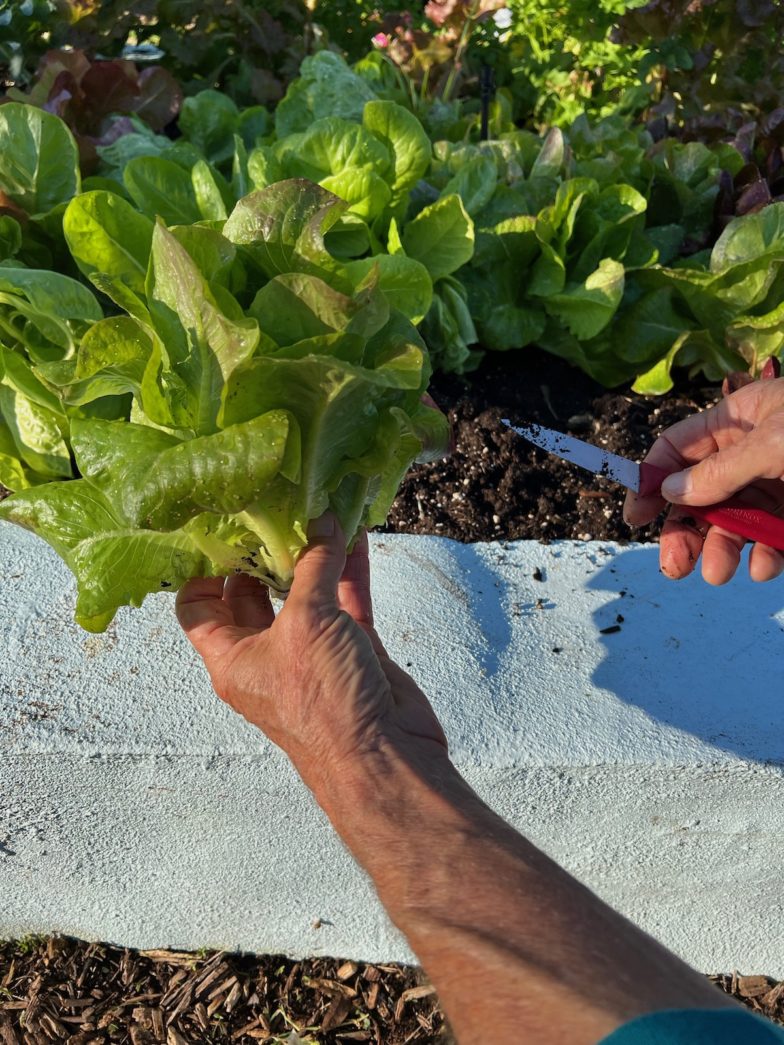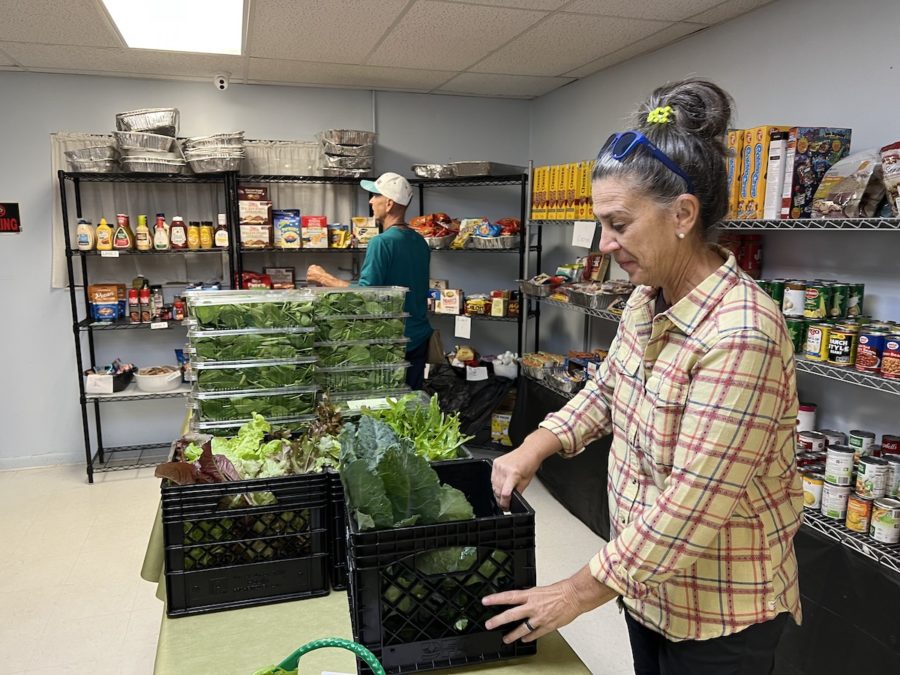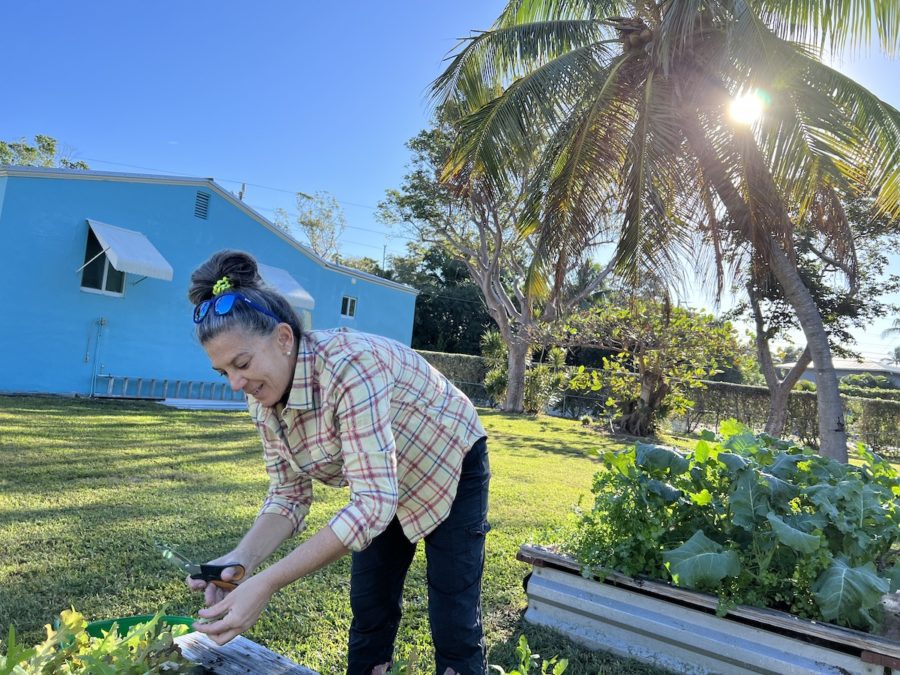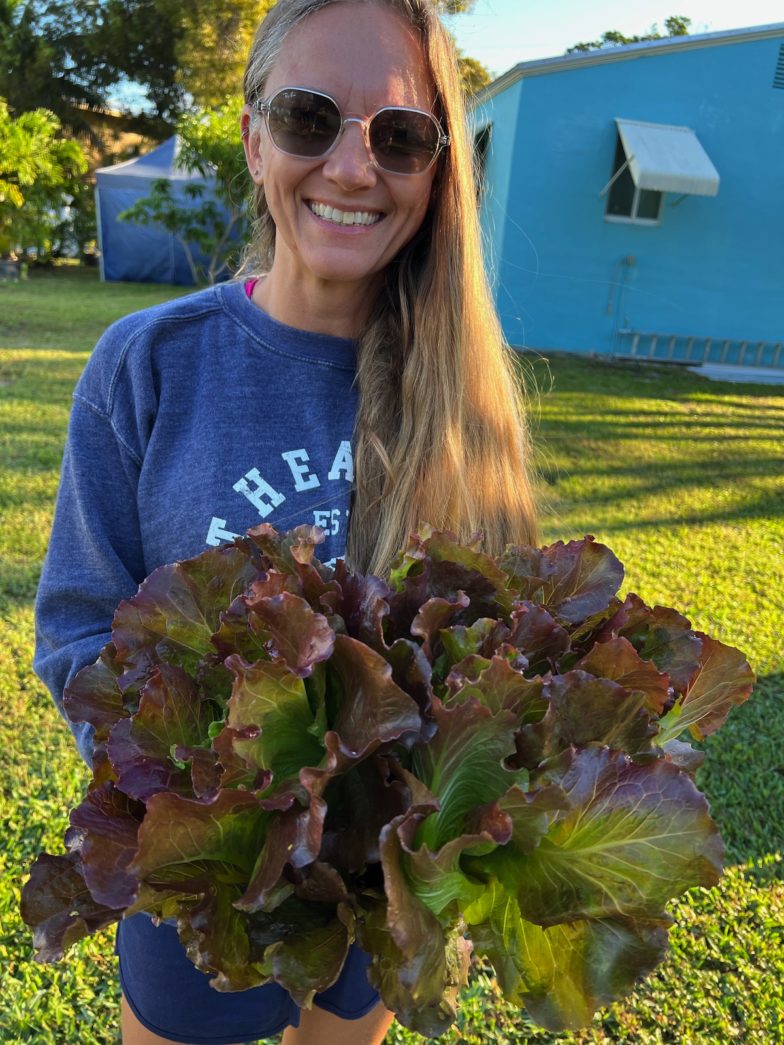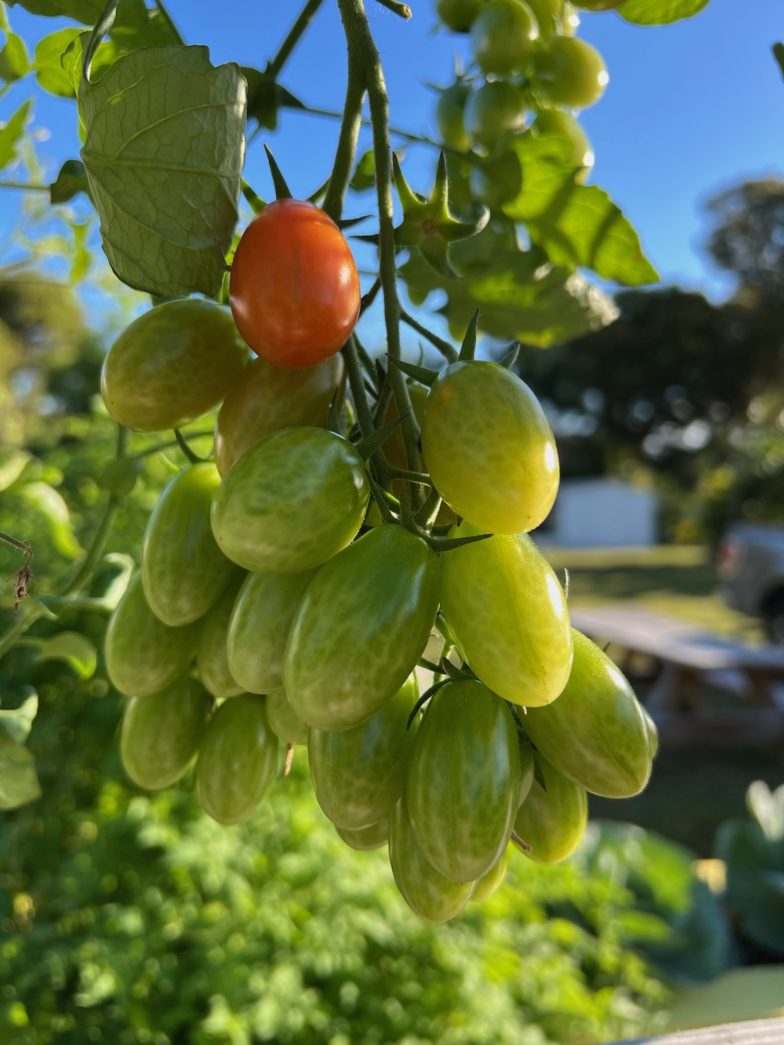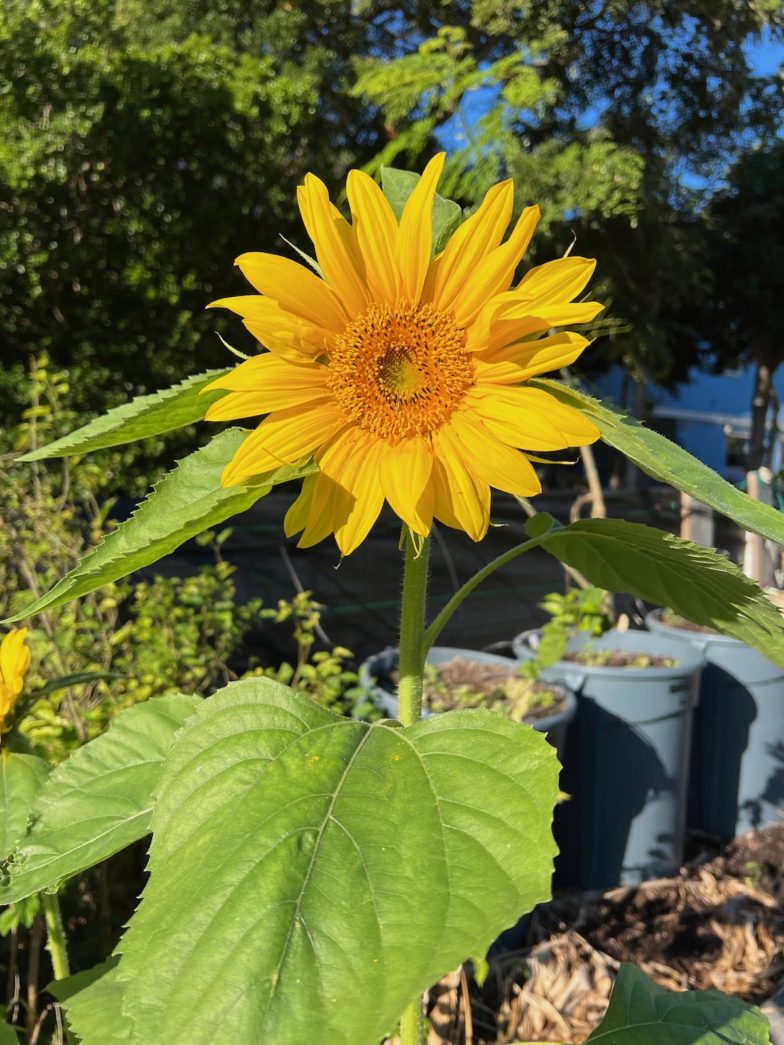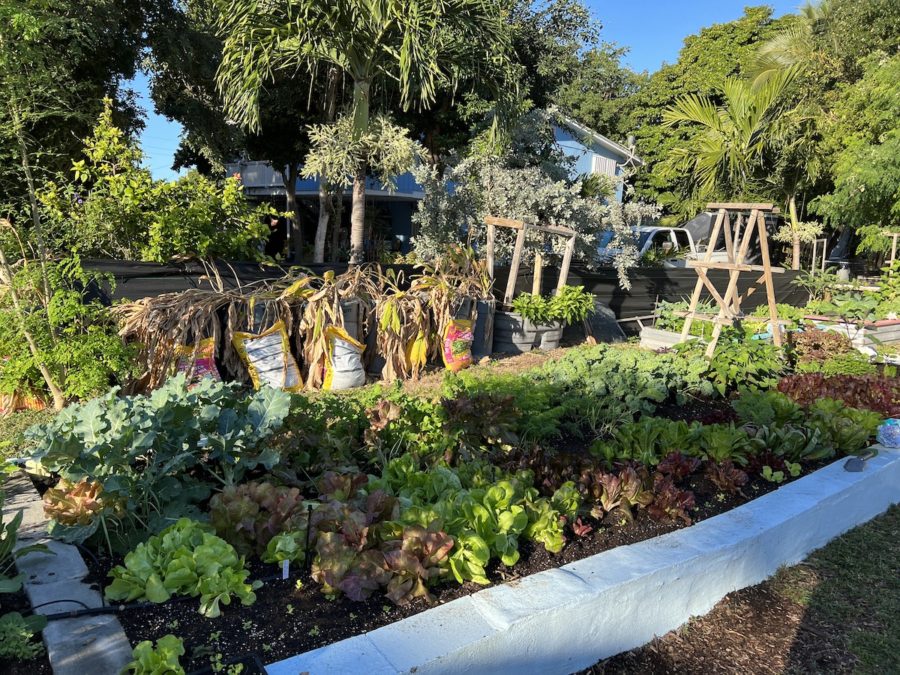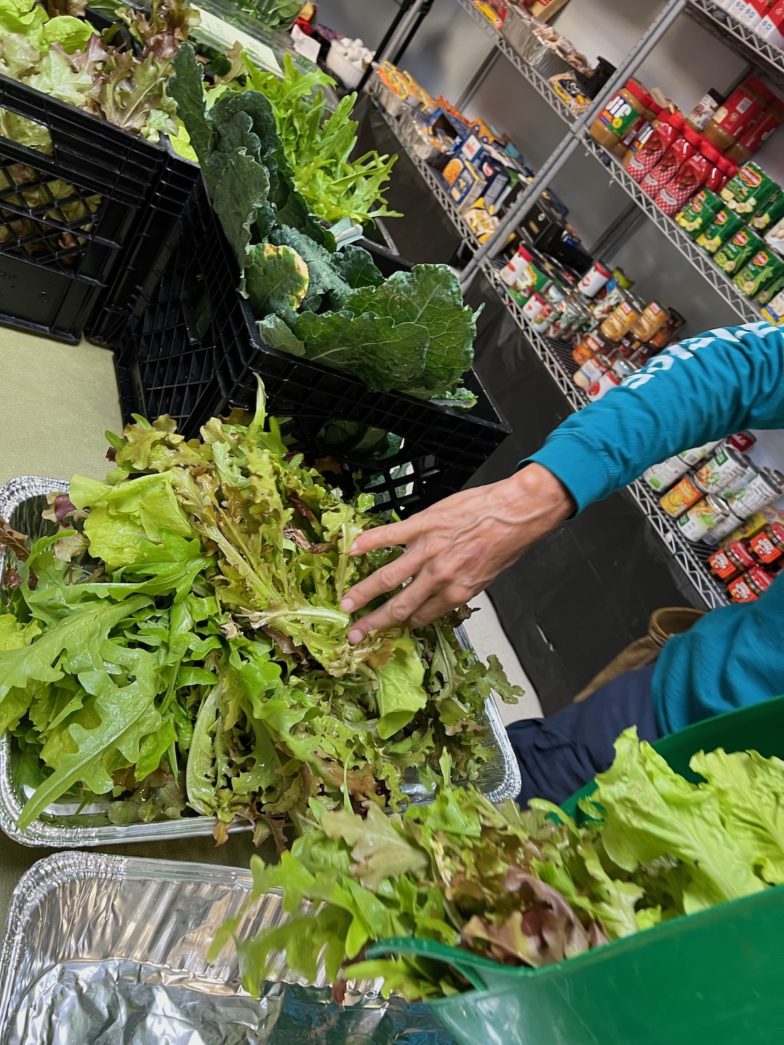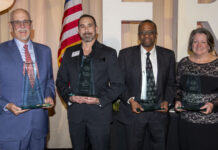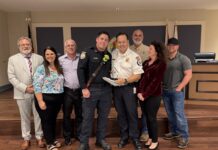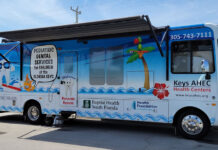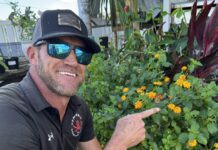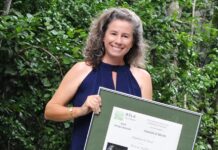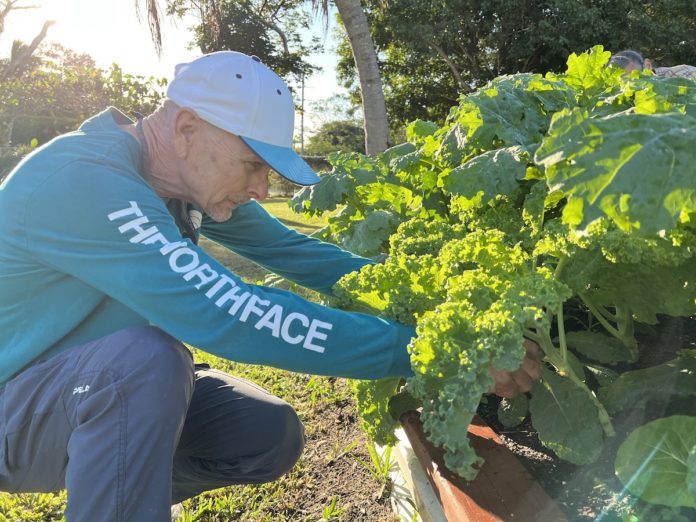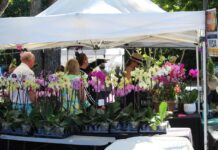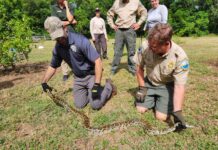The weather couldn’t be beat during the morning of Jan. 10 at the community garden behind the First Baptist Church of Islamorada. The temperature was just shy of jacket-worthy, and nary a cloud interrupted the blue sky. And Keys chefs would have rubbed their hands with glee at the produce that was spilling over the sides of the plots: sturdy kales, crisp lettuces, tender micro-greens, sweet tomatoes and flavorful herbs stood ready to be harvested.
“Welcome to the best kept secret in Islamorada,” garden organizer and volunteer Ed Kattel told a visitor. “It’s a perfect day for it, isn’t it?”
Indeed it was. And the future is bright: In addition to continuing to supply the Islamorada Food Bank, the garden is offering a class this Saturday, Jan. 14. Kattel and certified master gardener Bill Albury will be teaching beginners how to start growing vegetables. The duo claim that with their tips, class attendees can have sprouts for a salad within two days of planting. Even an amateur couldn’t screw it up.
And Kattel clearly has a knack for teaching. He led a visitor through the simple steps of planting vegetables: go to Home Depot, buy a fold-out table and some containers, soil and fertilizer. And that’s it. Just place the containers on a table in your backyard, and don’t forget to water.
He said that instead of buying a bag of romaine for five bucks at Publix, aspiring farmers can be out in the sun and enjoying the pleasure of learning a new skill. And with inflation and food
security issues, the time is ideal for everyone to learn how to grow food.
“Look here,” he said enthusiastically, walking over to his personal plot of 17 different lettuces. “Place your hands in the soil. That’s the joy of gardening. It’s grounding.”
“Ed has done a fantastic job with the garden,” said Steve Olsen. The pastor helps run the church’s community ministry and the food bank with his wife, Nancy. “He takes a teaching approach. Work one season with Ed, and you can be a good farmer.”
Kattel demurs to the compliment, emphasizing the community behind the garden and praising his co-teacher, Bill Albury. “He has been growing food at his Keys home since the 1970s.”
And that’s the thing — maintaining a vegetable garden in the Keys can be tough, between foraging iguanas and the heat.
“I love thinking that in the Florida Keys we can grow this,” said garden volunteer Kristi Mikula. “It is possible. And it tastes good. Last night I made a salad, and my husband was eating it and was like, ‘This is so good.’ I said, ‘That’s because it was in the dirt an hour ago.’”
At the class, Kattel and Albury will discuss growing sprouts as well as micro-greens, which can be ready for a salad in eight to 10 days.
Also on the agenda: Learning about compost, what grows here in the Keys, when to grow, what things to watch out for and how to deal with pests.
The class and a viewing of the garden is intended to be a celebration of First Baptist Church of Islamorada, which has hosted the community garden project over the past 10 years. The fellowship provided the space, a tool shed and an eco-friendly water source for gardeners so that they can water their crops.
Back at the garden on Tuesday, it was 9:30 a.m. Though the opening time for the food bank wasn’t until 10 a.m., guests were already lining up to receive the produce to stock their kitchens. The volunteers quickly piled heads of lettuce into a wheelbarrow and took it to the bank within the church.
“Fresh vegetables are harder to come by than dry goods,” Nancy said of the food bank’s guests. “So they are so excited to see fresh greens. We love when all the people of the Keys work together to meet a need.”
The food bank hours are every Tuesday from 10 a.m. to noon and 5 to 6 p.m. at the church, which is located at 81201 Overseas Highway, oceanside. For more information about the bank, call 305-306-7842.
The beginning vegetable-gardening classes will be this Saturday, Jan. 14, at 10 a.m. and 2 p.m., also at the church. Students should park in the large parking lot in front of the food bank and walk through the playground to the community garden. The cost is free, though donations are encouraged.
